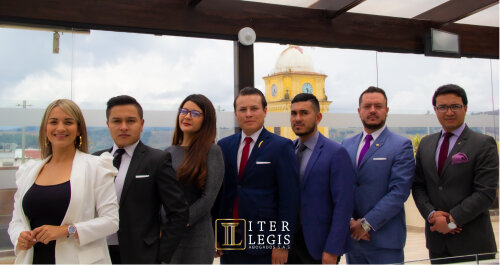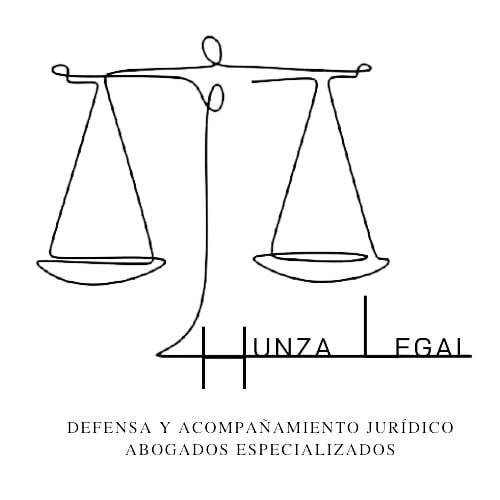Best Labor Law Lawyers in Tunja
Share your needs with us, get contacted by law firms.
Free. Takes 2 min.
List of the best lawyers in Tunja, Colombia
About Labor Law in Tunja, Colombia
Labor Law in Tunja, Colombia, is governed primarily by national regulations outlined in the Colombian Labor Code (Código Sustantivo del Trabajo) and supplemented by local practices and rulings. These laws provide a framework that protects both employers and employees, setting standards for employment contracts, wages, working hours, workplace safety, social security, and dispute resolution. The city of Tunja, as the capital of the Boyacá department, has various institutions and legal professionals dedicated to labor matters. Whether you are an employer or employee, understanding your rights and obligations under Colombian labor law is essential for a smooth workplace relationship.
Why You May Need a Lawyer
There are various circumstances where seeking legal assistance in labor law becomes necessary:
- Unfair Dismissal - If you believe you have been dismissed from your job without a justified cause or proper procedure, a lawyer can help defend your rights.
- Employment Contract Disputes - Issues such as unclear contract terms, changes to employment status, or breach of contract may require legal interpretation or action.
- Workplace Harassment and Discrimination - Facing harassment, discrimination, or bullying at work can be distressing, and a lawyer can guide you on the legal recourse.
- Unpaid Wages or Benefits - Lawyers help recover unpaid wages, social security contributions, overtime pay, or other labor entitlements.
- Social Security and Pension Issues - Navigating the complex pension system or social security contributions often requires professional assistance.
- Negotiating Collective Agreements - Both employers and employees might need legal guidance when negotiating or interpreting collective bargaining agreements.
A lawyer specializing in labor matters can clarify your rights, prevent costly mistakes, and represent you in negotiations or judicial proceedings if necessary.
Local Laws Overview
Labor law in Tunja operates under the framework established by the Colombian Labor Code and related national regulations, but some local factors and courts can play a role in proceedings. Below are key aspects:
- Employment Contracts - Contracts may be written or verbal but must adhere to the code’s minimum standards, including probation periods, remuneration, and termination clauses.
- Working Hours and Overtime - The legal work week is 48 hours, typically spread over six days. Overtime pay rates and night shift premiums apply by law.
- Minimum Wage - Colombia sets a national minimum wage that all workers, including those in Tunja, are entitled to receive, recalculated annually.
- Social Security - Employers must register employees for pensions, health, and occupational risk insurance. Both employer and employee contribute.
- Job Termination - Employers must provide a valid reason or pay severance, following lawful termination procedures to avoid wrongful dismissal claims.
- Labor Courts - Tunja has local labor courts and Labor Conciliation Centers where disputes can be presented and resolved.
- Protection against Discrimination - The labor code prohibits discrimination based on gender, race, religion, or political opinion.
Frequently Asked Questions
What rights do employees have under Colombian labor law?
Employees have rights to fair wages, social security, a safe work environment, freedom from discrimination, and due process in termination and disciplinary actions.
What are the legal grounds for dismissal in Colombia?
Employment can be terminated with or without cause. Just causes include repeated misconduct, poor performance, or company downsizing, but proper procedures and severance payment may apply.
How is severance pay calculated?
Severance pay depends on the length of service and salary. It typically equals 30 days’ salary for each year worked, but the amount may vary for higher-paid employees.
What is the minimum wage in Colombia and does it apply in Tunja?
The minimum wage is set nationally each year by the government and applies equally in Tunja and all Colombian cities.
Are employment contracts required to be in writing?
Contracts can be verbal or written, but written contracts are strongly recommended for clarity. Some types of contracts are required by law to be in writing.
How do I file a labor complaint in Tunja?
Complaints can be filed at the local Ministry of Labor office or labor court. Prejudicial conciliation is usually required before initiating formal legal proceedings.
What protections exist against workplace harassment?
Colombian law has strict measures against workplace harassment including internal reporting mechanisms and possible penalties against violators.
Do employees receive bonuses and vacation?
Yes, employees are entitled to a mid-year and year-end bonus (prima), as well as annual paid vacation and other statutory benefits.
Can foreigners work in Tunja?
Foreign workers require proper visas and work permits. The same labor protections apply to all legal employees regardless of nationality.
How does collective bargaining work in Colombia?
Employees may form unions and negotiate collective bargaining agreements. These agreements are enforceable and can provide better conditions than the legal minimum.
Additional Resources
Several resources are available for labor law matters in Tunja:
- Ministry of Labor (Ministerio del Trabajo) - Handles workplace complaints, inspections, and promotes compliance with labor law.
- Local Labor Courts - Adjudicate employment disputes and protect worker rights.
- Trade Unions and Workers’ Associations - Offer representation and advice for collective matters.
- Legal Aid Clinics - Some universities and NGOs in Boyacá provide free legal consultations on labor rights.
- Labor Conciliation Centers - Facilitate out-of-court agreements between employers and employees.
Next Steps
If you believe your labor rights have been violated or you face a workplace issue in Tunja, consider the following steps:
- Gather Documentation - Collect all relevant employment contracts, pay stubs, written communications, and any evidence related to your case.
- Seek Advice - Consult with a labor law attorney familiar with local practices in Tunja. Many initial consultations are low-cost or free.
- Contact the Ministry of Labor - For workplace complaints, initiating contact with the local labor office is often required for formal resolution.
- Attempt Conciliation - Many disputes are resolved through voluntary conciliation, saving time and resources.
- Consider Court Action - If disputes cannot be resolved amicably, filing a formal lawsuit in the labor courts may be necessary.
Navigating labor law issues can be complex, but with proper guidance and local support, you can protect your employment rights in Tunja, Colombia.
Lawzana helps you find the best lawyers and law firms in Tunja through a curated and pre-screened list of qualified legal professionals. Our platform offers rankings and detailed profiles of attorneys and law firms, allowing you to compare based on practice areas, including Labor Law, experience, and client feedback.
Each profile includes a description of the firm's areas of practice, client reviews, team members and partners, year of establishment, spoken languages, office locations, contact information, social media presence, and any published articles or resources. Most firms on our platform speak English and are experienced in both local and international legal matters.
Get a quote from top-rated law firms in Tunja, Colombia — quickly, securely, and without unnecessary hassle.
Disclaimer:
The information provided on this page is for general informational purposes only and does not constitute legal advice. While we strive to ensure the accuracy and relevance of the content, legal information may change over time, and interpretations of the law can vary. You should always consult with a qualified legal professional for advice specific to your situation.
We disclaim all liability for actions taken or not taken based on the content of this page. If you believe any information is incorrect or outdated, please contact us, and we will review and update it where appropriate.











